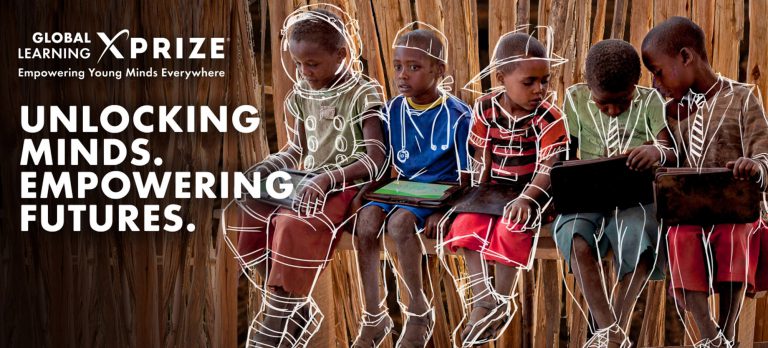
As technology continues to seep into every nook and cranny of the modern educational world, it has become an increasingly important tool for students and educators alike, in settings from tony private prep schools to local public schools in rural villages.
Yet there’s a fundamental problem underlying this move toward technology – many students still lack the basic resources to learn, much less utilize an iPad to expand their knowledge. Schools across the world, from the United States to Ukraine, are underfunded, with overworked teachers and not enough books to go around. Many schools in developing countries can’t even rely on the consistent presence of a teacher, while economic hardship or obligations like helping out with the family business often keep children out of school for days or weeks at a time, causing them to fall behind in their studies, which in turn leads to feelings of frustration or perhaps even dropping out.
Teacher shortage is also a major concern – the world simply doesn’t have as many teachers as it needs. UNESCO estimates that the world needs 1.6 million more teachers globally as of 2015, with that number is set to double by 2030.
These, as well as a number of other factors, help explain why as many as 250 million of the world’s primary school-age children – the majority of them in developing countries – cannot adequately read or write. Tablets, smart classrooms and other educational technology tools like learning apps may be a valuable resource for teachers and students, but they can hardly have much impact when the student in question can’t even read the directions to understand what he or she is supposed to do.
Or do they?
A new project is aiming to upend that dynamic by challenging software developers and coders to create open source and scalable software that will enable children in developing countries to teach themselves basic reading, writing and arithmetic.
The $15 million Global Learning XPRIZE asks some of the world’s brightest and most innovative creative minds to put their energy toward helping children break the cycle of poverty. The prize’s site states that “Literate children are less likely to live in poverty, and more like to live healthy and productive lives.” It adds, “When children learn how to learn, they lay the groundwork for a lifetime of continued exploration and achievement.”
XPRIZE, which has sponsored other innovation competitions — including the Ansari XPRIZE to develop private space travel and the Google Lunar XPRIZE to send a robot to the moon – calls the Global Learning prize its first “truly international competition.” The organization is seeking diverse teams of software and game developers, neuroscientists, educators, linguists and engineers from all around the world to participate in the challenge.
Ultimately, its sponsors hope, the challenge will “prove that technology can empower children to autonomously learn basic reading, writing and arithmetic. Once proven, this open source solution could be iterated upon, scaled and deployed around the world, bringing quality learning experiences to children who do not have access to formal education, and supplementing the learning experiences of children who do.”
The top five teams with the best solutions, chosen by a panel of judges, will each receive $1 million and move on to the 18-month field testing period, which will determine the most effective of the five. The testing phase will focus on remote areas of the world where access to quality education is limited at best and where literacy will have the greatest direct impact.
At the end of field testing, judges will analyze results to determine which team’s solution was the most effective at teaching students and helping them acquire learning tools. The winning team will receive a $10 million prize and its software will be distributed for use around the world.







